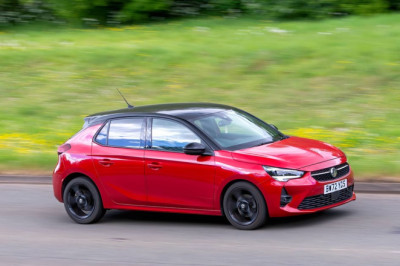
Electric car drivers face a double whammy of rising costs from today.
EV owners in Britain will collectively pay £22.3million more a month to run their cars as the combination of having to pay car tax for the first time and Ofgem's price cap hike kick in simultaneously.
Electric car owners in the UK will now pay a total of £55.4million a month between vehicle excise duty (VED) and charging, digital car finance lender Carmoola has calculated.
Most electric vehicle owners will be paying a standard rate of car tax of £195 a year under new rules introduced by the Chancellor, while increasing energy costs will see the average home charge rise from £14.91 to £16.21 (£1.30 increase) from today.
Aidan Rushby, founder and chief executive of Carmoola, said: 'With a 6.4 per cent increase in the price cap and the end of car tax exemptions for EVs, the financial pressures are mounting.'
Here's how much electric car drivers will now have to fork out...
1 April combines tax changes for EV drivers and increased home charging costs as the energy price cap rises by over 6% - so EV owners are paying £22.3m more collectively each month
This is Money has extensively covered how new tax changes for electric cars will affect drivers.
Despite this, a survey of 2,000 drivers carried out by GoCompare at the end of February found that only 48 per cent of motorists were aware of wholesale changes to VED from today, including EV owners being forced to contribute to Treasury coffers.

Any new battery model purchased from 1 April will incur a £10 first-year 'showroom tax'.
However, from the second year on, owners will pay the same standard rate of VED as petrol and diesel car drivers - an annual outlay of £195.
For new EVs bought after 1 April 2025 and costing over £40,000, they will also be stung with the £425-a-year 'expensive car supplement' - an additional tax on 'luxury' cars that's levied on top of the standard rate for five years.
EVs registered between 1 April 2017 and 31 March 2025 will move straight to the standard rate of £195 a year (£16.25 per month), too.
Older vehicles registered from March 2001 will shift to the first vehicle excise duty (VED) band with a charge set at £20 per year.
The Labour Government is overseeing the biggest shake-up to car tax in almost a decade with EVs now required to pay Vehicle Excise Duty (VED) - with most EVs paying £195 a year
This pushes the nationwide monthly tax bill for most electric car owners to an estimated £19.5million.
This is in spite of Rachel Reeves claiming in the October Autumn Budget that changes to VED would 'strengthen incentives to purchase zero emission and electric cars, by widening the differentials between zero emission, hybrid and internal combustion engine cars'.
Chris Rosamund, current affairs and features editor at Auto Express commented on the deterrent to EV take up these new tax changes are creating: 'With private EV uptake already struggling and cost being one of the main deterrents for potential buyers, this change risks slowing adoption at a critical time.
'The Government should be supporting drivers in making the switch to EVs, not penalising them.'
The energy price cap changes every three months. 1 April sees a rise of 6.4% which means EV owners who charge at home on a flexible tariff will see charging costs rise

How much is the energy price cap rise and how will EV charging costs increase?
The energy price cap, which is reviewed quarterly by regulator Ofgem, was introduced on 1 January 2019 to stop homes on expensive variable tariffs from being ripped off by prpviders.
The rise that comes in today will see the Energy Price Cap increased by 6.4 per cent to £1,849 per year for a typical household who use electricity and gas and pays by Direct Debit.
This is up from £1,738 between 1 January and 31 March 2025.
The result for EV owners who have a variable tariff and charge their electric car at home is that the average cost to fully charge an EV on their driveway will increase from £14.91 to £16.21 (to charge a 60kWh battery EV), according to Carmoola's findings.
With 1.2 million EVs across the UK and the average at home car charger using 108kWh per month, motorists are expected to spend approximately £35million a month charging their car due to the energy price increase.
This is an extra £2.84million from what was spent in March 2025 (£32.2million).
However, charging at home can still be significantly cheaper than charging using the public network, even if you're on a flexible tariff and not an EV-dedicated tariff.
Motorists are expected to spend approximately £35 million a month charging their car due to the energy price increase as the price of a full charge goes up by £1.30
The AA's February Recharge Report found that domestic charging of speeds up to 7kW cost 25p/kWh on average - just £10 to get to 80 per cent charge (or 5.65p per mile).
On the other hand, charging using a public device up to 7kW cost 52p/kWh on average - £20.80 to charge to 80 per cent (or 11.69p per mile).
While the effects that the price cap rise brings on the average home charging remain to be fully seen, it's worth bearing in mind that the price cap changes every three months, and it's predicted to fall in July 2025.
Rushby said: 'Our recent survey revealed that nearly a third of Britons would avoid switching to an EV due to rising energy costs — a figure that's likely to rise following these latest announcements.
'To help manage costs, we recommend EV owners charge at home where possible and check if their energy provider offers off-peak tariffs, which can significantly cut down charging expenses.'














